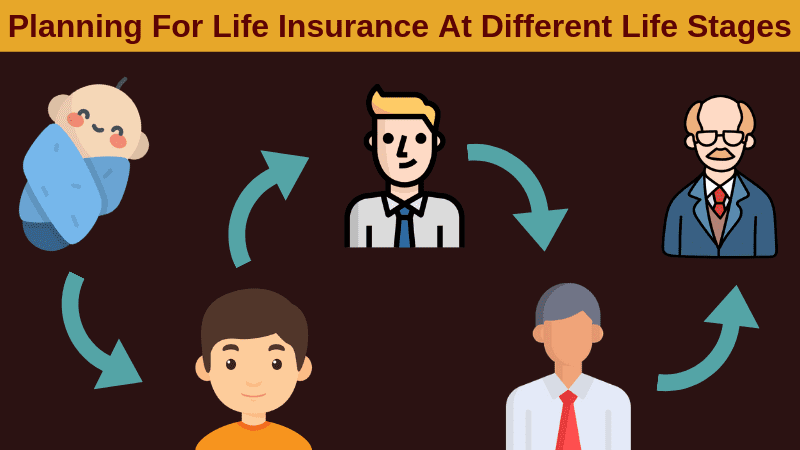1. Introduction
Insurance planning plays a crucial role in safeguarding your financial well-being and providing protection for life’s unexpected events. This guide will help you understand the importance of insurance planning and guide you through the process of assessing your insurance needs and selecting the right coverage for different life events.
2. Importance of Insurance Planning
Insurance planning provides financial security and peace of mind by transferring the risks associated with certain events to an insurance provider. It helps protect you and your loved ones from potential financial hardships that can arise due to accidents, illnesses, disability, property damage, or other unforeseen circumstances.
3. Assessing Your Insurance Needs
Start by assessing your insurance needs based on your personal and financial circumstances. Consider your age, marital status, dependents, income, debts, and financial goals. Evaluate the potential risks you may face and the level of protection required to mitigate those risks effectively.
4. Life Insurance
Life insurance provides a financial safety net for your loved ones in the event of your death. There are different types of life insurance policies to consider:
- Term Life Insurance: Provides coverage for a specific term, typically 10, 20, or 30 years. It offers a death benefit to your beneficiaries if you pass away during the policy term.
- Whole Life Insurance: Offers lifelong coverage and includes a savings component known as cash value. It provides both a death benefit and the opportunity to build cash value over time.
- Universal Life Insurance: Offers flexible premiums and death benefit amounts. It combines life insurance coverage with a cash value component that can grow over time.
5. Health Insurance
Health insurance is essential to protect against the high costs of medical care. Consider the following options:
- Employer-Sponsored Health Insurance: Many employers offer health insurance plans to their employees, providing coverage for medical expenses and often including options for dependents.
- Individual Health Insurance: If you’re self-employed or not covered by an employer’s plan, individual health insurance can be purchased directly from insurance providers or through healthcare marketplaces.
- Government Health Insurance Programs: In some countries, there are government-sponsored health insurance programs that offer coverage for individuals and families who meet certain eligibility criteria.
6. Disability Insurance
Disability insurance provides income replacement if you become unable to work due to an illness or injury. It ensures you can meet your financial obligations and maintain your standard of living during periods of disability.
7. Property Insurance
Property insurance protects your assets from various risks. Consider the following types:
- Homeowners Insurance: Provides coverage for your home and its contents against damage or loss due to fire, theft, natural disasters, and other covered perils.
- Renter’s Insurance: Covers personal belongings and liability for renters, protecting against theft, fire, and other covered risks.
- Auto Insurance: Mandatory in most jurisdictions, auto insurance provides coverage for damage or injuries resulting from auto accidents.
8. Long-Term Care Insurance
Long-term care insurance covers the costs associated with long-term care services, such as nursing homes, assisted living facilities, and in-home care. It helps protect your assets and provides financial support in the event of extended care needs.
9. Evaluate Existing Insurance Coverage
Review your existing insurance policies to ensure they align with your current needs. Consider any changes in your circumstances or assets that may require adjustments to your coverage levels or additional policies.
10. Seek Professional Advice
Insurance planning can be complex, so it’s advisable to seek advice from an insurance professional or financial advisor. They can assess your specific needs, recommend suitable coverage options, and help you navigate the insurance landscape.
11. Review and Update Your Insurance Policies
Regularly review and update your insurance policies as your life circumstances change. Marriage, the birth of a child, a new home, or a change in employment may warrant adjustments to your coverage. Stay proactive to ensure your insurance remains adequate and relevant.
12. Conclusion
Insurance planning is a vital aspect of financial well-being, protecting you and your loved ones from the financial impact of life’s uncertainties. By assessing your insurance needs, selecting appropriate coverage, and staying informed, you can secure peace of mind and confidently navigate life’s challenges.
13. FAQs
Q: Can I have multiple life insurance policies?
A: Yes, it’s possible to have multiple life insurance policies to meet specific financial goals and coverage needs. Each policy should be evaluated based on its benefits, costs, and how it aligns with your overall insurance strategy.
Q: What factors affect my health insurance premium?
A: Health insurance premiums can be influenced by factors such as age, location, coverage level, pre-existing conditions, and the insurance provider’s pricing structure. It’s essential to compare different plans and consider your specific healthcare needs.
Q: Do I need long-term care insurance?
A: Long-term care insurance can be beneficial if you want to protect your assets and have coverage for potential long-term care expenses. Consider factors such as your age, health, family history, and financial situation when deciding if long-term care insurance is right for you.
Ensure the protection of what matters most by engaging in thorough insurance planning. By assessing your needs, selecting appropriate coverage, and regularly reviewing your policies, you can safeguard your financial well-being and prepare for life’s unexpected events.



